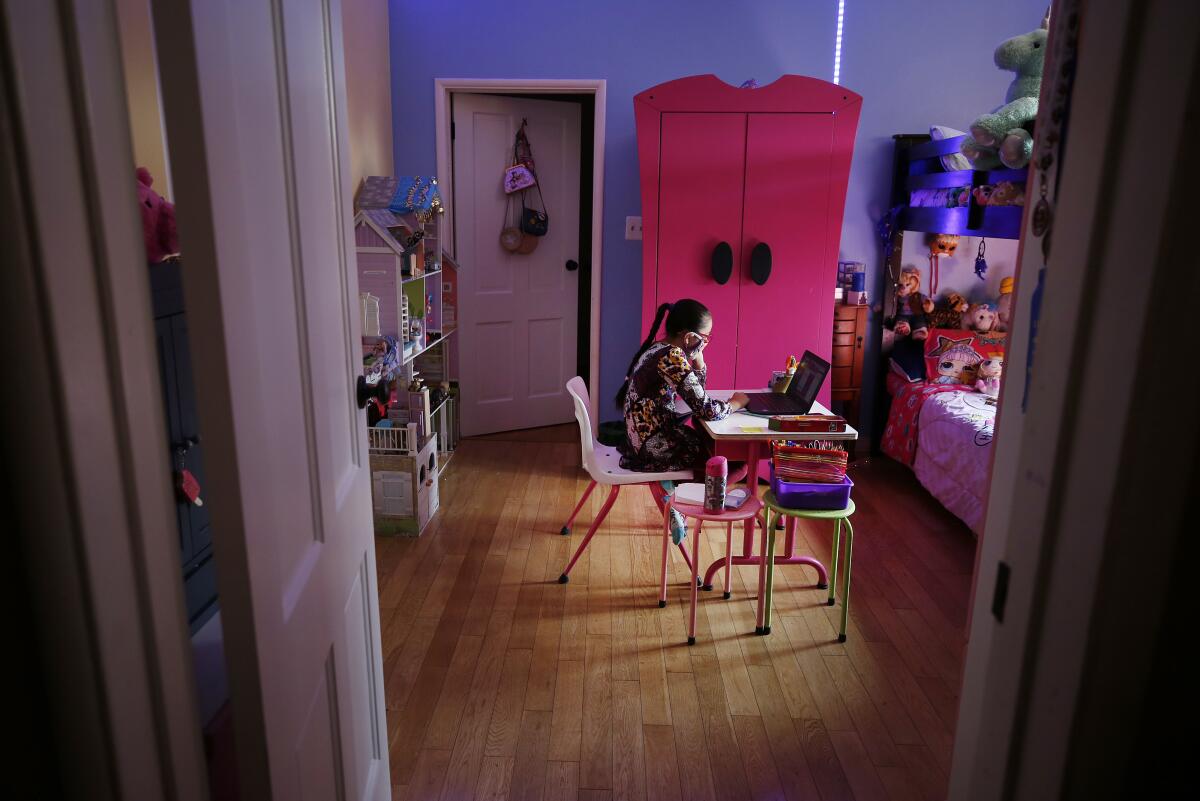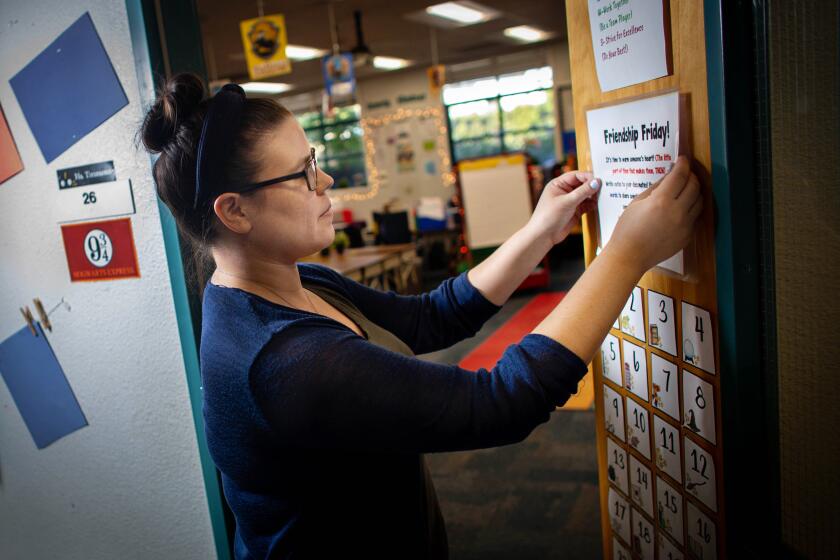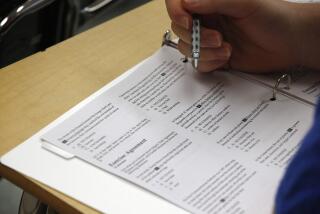Despite concerns over increasing student stress, standardized testing to go on with some limits

- Share via
Despite deep concerns over elevating student stress just as children are returning to school, standardized testing will take place this spring for about 4.3 million California students.
With limited options, the state Board of Education voted against pursuing a blanket waiver from the federal government to suspend mandated standardized testing after the Biden administration released guidance this week that encouraged states to move forward with testing — but come up with ways to ease the process.
The decision Wednesday came after educators and parents pleaded with board members to cancel testing — while others stressed the importance of capturing the extent of learning loss during pandemic-forced campus closures.
Without end-of-year assessments, some board members said, educators would miss critical testing data points for the second straight year. Tests were canceled in 2020 at the onset of campus closures.
However, other educators argued that the tests would add unnecessary stress to students who are already experiencing pandemic-related trauma, take time away from checking in on students’ wellbeing, and take valuable time away from teaching after nearly a year out of class for most.
“We have less than perfect choices,” Board President Linda Darling-Hammond said after listening to several educators speak in favor of seeking a blanket waiver.
The board voted unanimously to move forward with testing and agreed to request two waivers from the U.S Department of Education. One would seek a suspension to rules that require 95% of students to take the tests under the Every Student Succeeds Act to qualify for federal funds. The second would exempt California from using spring test results to identify schools as needing improvement and support.
California uses “Smarter Balanced” annual assessments to meet the federal government’s standardized testing requirement by testing students in grades 3-8 and 11 on math and English language arts. Students typically take the test on a computer, and it can take up to eight hours to complete. Each device requires a secure browser and high-speed, stable internet. In November, the state board approved a shortened version of the test.
To further ease the pressures of testing, the board approved extending the time frame for the administration of the Smarter Balanced and the English Language Proficiency Assessments for California tests by 15 days to July 30. The board also directed the state education department to seek a waiver and suspend the California Science Test after board member Ilene Straus said districts were not able to purchase materials needed to prepare for it.
During the COVID-19 pandemic, teachers are being tested like never before. Many students are drifting, struggling with anxiety and are bedeviled by bad internet connections.
Many educators and teachers unions — including United Teachers Los Angeles — have been strongly opposed to testing. They say students and families are already struggling during the pandemic and do not need the added stress. Some who spoke at the meeting urged a blanket waiver.
Angelina Gutierrez, a legislative assistant for the Los Angeles County Office of Education, told the state board that suspending tests would give school districts in the county flexibility in administering local assessments.
“The statewide assessment is not necessary in our current climate to properly measure the progress our students have made this year,” Gutierrez said, adding that data would be “unreliable” compared to previous years.
While remote testing is an option, members were cautious about directing school districts to do so because of connectivity and computer access troubles among some students.
Straus said the state board should make it clear that it does not expect school districts to administer tests remotely and leaders should not feel pressured to conduct tests immediately after reopening.
“We expect state assessments to be given when students are back in a safe environment for several weeks before it is administered,” Straus said.
State Supt. of Public Instruction Tony Thurmond also suggested that remote testing “is simply not a viable option” for the hundreds of thousands of students at home lacking internet access.
“Even as more schools reopen in the weeks and months ahead, it seems unlikely there is enough time to meaningfully prepare our students for statewide tests,” Thurmond said in a statement. Still, he said, he recognized the importance of collecting data and would work to provide flexibility to school districts for testing.
The pressure to seek a blanket waiver is likely to continue. The National Center for Fair and Open Testing is encouraging families across the country to opt out of testing. The California Teachers Assn. has a petition that has been signed by more than 46,000 parents and educators who want to suspend testing.
The United Teachers of Los Angeles said it continues to support a statewide waiver. Cecily Myart-Cruz, president of UTLA, said in a statement that the union opposes standardized testing in a pandemic because students and families “are just trying to survive.”
“We stand by parents’ decision to opt out,” Myart-Cruz said. “Standardized tests were inappropriate before the pandemic and now it’s deeply problematic, either in a remote or in-person classroom.”
Several California superintendents favored a waiver. Asked if the district has a stance on the issue, Shannon Haber, an LAUSD spokesperson, said, “I don’t believe we do” and declined to comment about plans to administer the tests.
More to Read
Sign up for Essential California
The most important California stories and recommendations in your inbox every morning.
You may occasionally receive promotional content from the Los Angeles Times.












